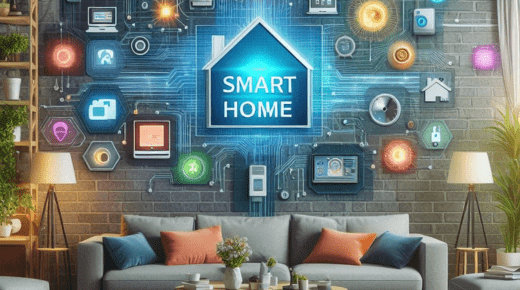In recent years, the concept of smart homes has transitioned from a futuristic idea to a practical reality for many homeowners. Smart homes use technology to enhance comfort, security, and efficiency, offering a level of convenience that traditional homes simply can’t match. Whether you’re looking to automate your lighting, control your thermostat remotely, or improve your home’s security with smart cameras, smart home technology offers endless possibilities. However, achieving a seamless smart home experience often requires professional installation. This article will guide you through what smart homes are, the benefits of hiring professional smart home installers, and what to expect from the smart home installation process.
What is a Smart Home?
A smart home integrates advanced technology to control various aspects of your household. From smart thermostats and lighting systems to home security cameras and voice-controlled assistants, these devices work together to enhance your daily living. The primary goal of a smart home is to offer convenience, improve energy efficiency, and increase security.
Smart homes use a centralized system, often referred to as a smart hub, to manage connected devices. This hub allows homeowners to control their smart devices through a smartphone app, voice commands, or even automated routines. For example, you can set your thermostat to adjust the temperature based on your schedule, turn off lights remotely, or receive notifications if your security system detects unusual activity.
The Benefits of Smart Home Technology
- Convenience: One of the most significant advantages of smart home technology is convenience. With the ability to control various aspects of your home from a single device, such as your smartphone or voice assistant, managing your home becomes effortless. Imagine arriving home to a pre-heated house and lights that turn on automatically as you enter.
- Energy Efficiency: Smart home devices can help you save on energy bills. Smart thermostats learn your schedule and adjust heating or cooling accordingly, while smart lighting systems can turn off lights when rooms are unoccupied. These energy-saving features not only reduce your utility bills but also contribute to a more eco-friendly lifestyle.
- Enhanced Security: Smart home security systems provide real-time alerts and remote monitoring capabilities. With smart cameras, doorbells, and locks, you can keep an eye on your property from anywhere in the world. Additionally, integration with other smart devices can automate security measures, such as locking doors or turning on lights at specific times.
- Customization and Control: Smart homes offer a high level of customization. You can create personalized settings and routines that fit your lifestyle. For instance, you can program your smart lighting to mimic your presence at home while you’re away on vacation, or set up a morning routine that gradually brightens your bedroom lights to wake you gently.
Why Hire Professional Smart Home Installers?
While many smart home devices come with DIY installation options, hiring professional smart home installers can offer several advantages:
- Expertise and Experience: Professional installers have the knowledge and experience to set up complex systems correctly. They understand how to integrate various devices and ensure they work seamlessly together, avoiding potential issues that may arise from incorrect installation.
- Optimized Performance: Professionals can optimize the placement and configuration of smart devices to ensure they perform at their best. For example, they can position smart thermostats and sensors in optimal locations to achieve accurate temperature readings and improve energy efficiency.
- Time and Convenience: Installing a smart home system can be time-consuming and complicated, especially if you’re unfamiliar with the technology. Professional installers can handle the setup efficiently, allowing you to enjoy your smart home features without the hassle.
- Troubleshooting and Support: If issues arise with your smart home system, professional installers often provide ongoing support and troubleshooting. This ensures that any problems are addressed quickly, minimizing disruptions to your daily life.
What to Expect During Smart Home Installation
- Consultation: The installation process typically begins with a consultation where the installer assesses your needs and preferences. They will discuss the types of smart devices you want to integrate and provide recommendations based on your home’s layout and your lifestyle.
- Installation: Once the plan is in place, the installer will set up and configure your smart devices. This may involve wiring, mounting equipment, and integrating devices with your smart hub. The installer will also ensure that all devices are connected to your home network and functioning correctly.
- Testing and Training: After installation, the installer will test the system to ensure everything is working as expected. They will also provide training on how to use the smart devices and apps, so you can make the most of your new smart home.
- Follow-Up: Many professional installers offer follow-up support to address any questions or issues that may arise after the installation. This ensures that you receive ongoing assistance as you become accustomed to your smart home system.
Conclusion
Smart homes represent the future of modern living, offering unmatched convenience, efficiency, and security. Whether you’re looking to upgrade your current home or start fresh with a new smart home setup, hiring professional smart home installers can ensure a smooth and successful installation. With their expertise, you can enjoy a seamlessly integrated smart home that enhances your lifestyle and meets your unique needs. Embrace the future of home technology and experience the benefits of a smart home today.

